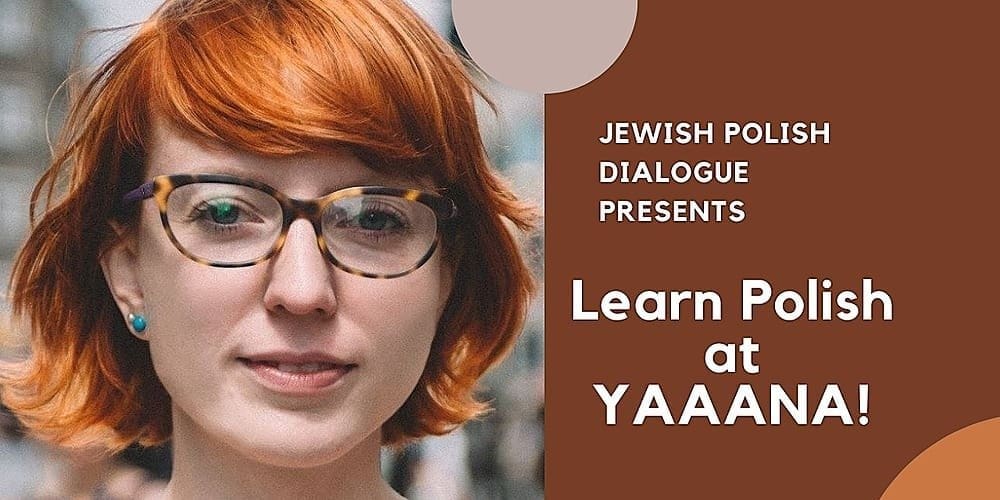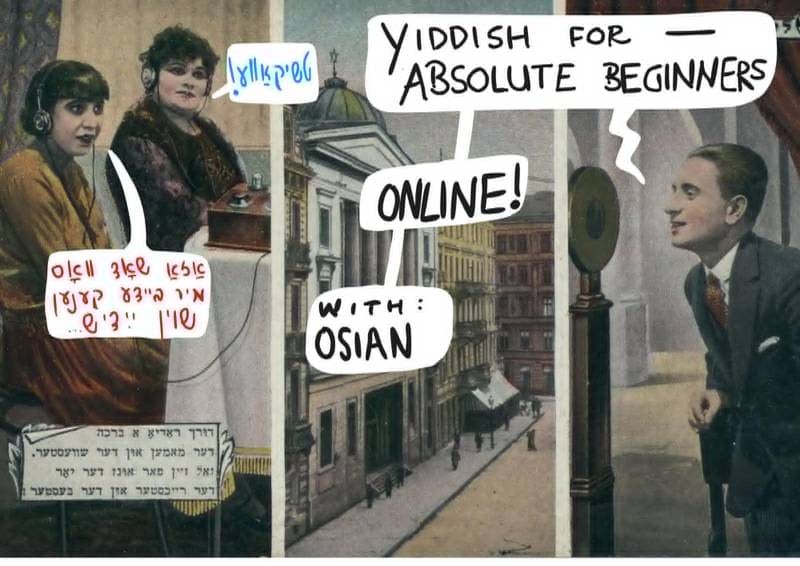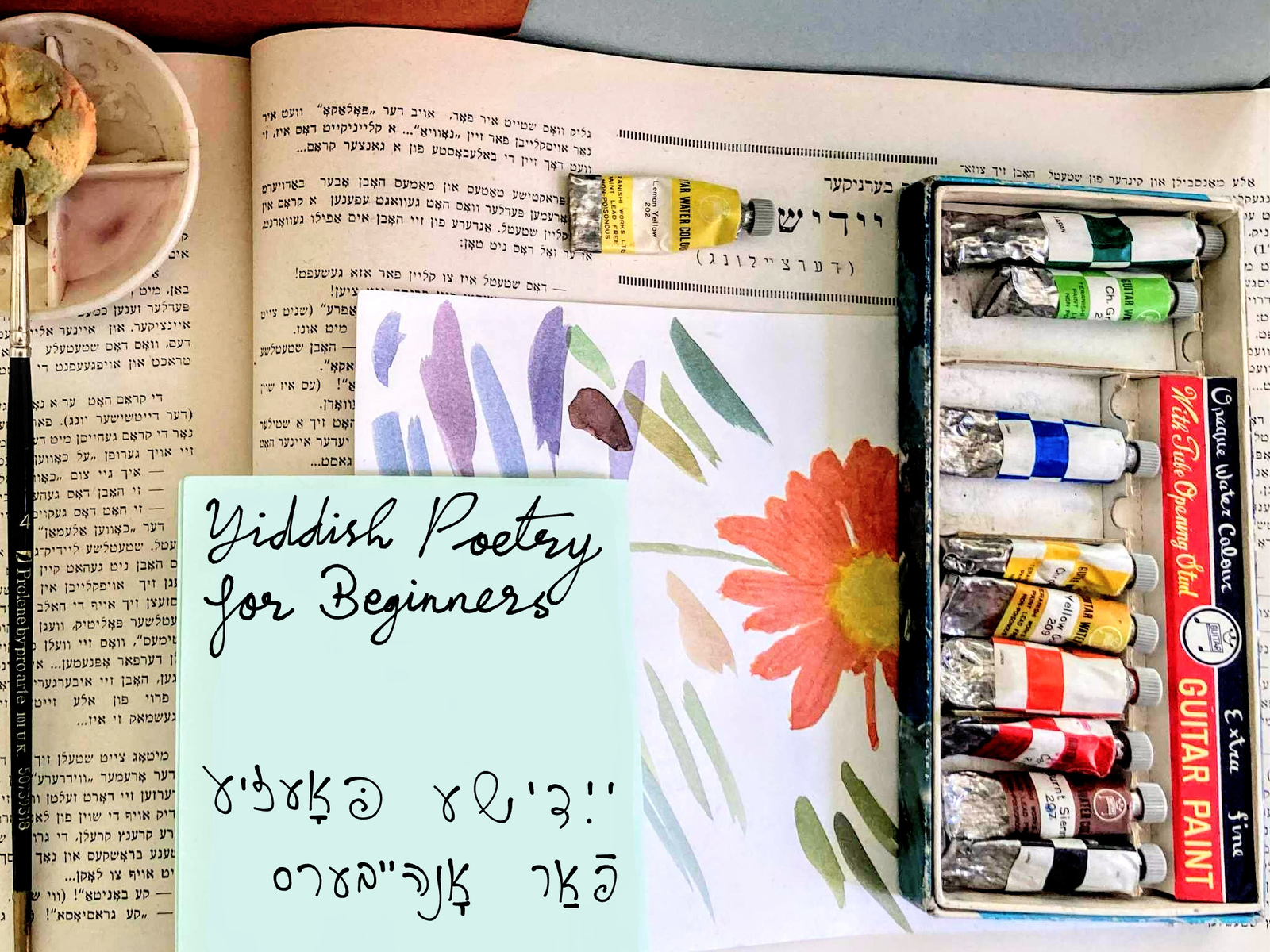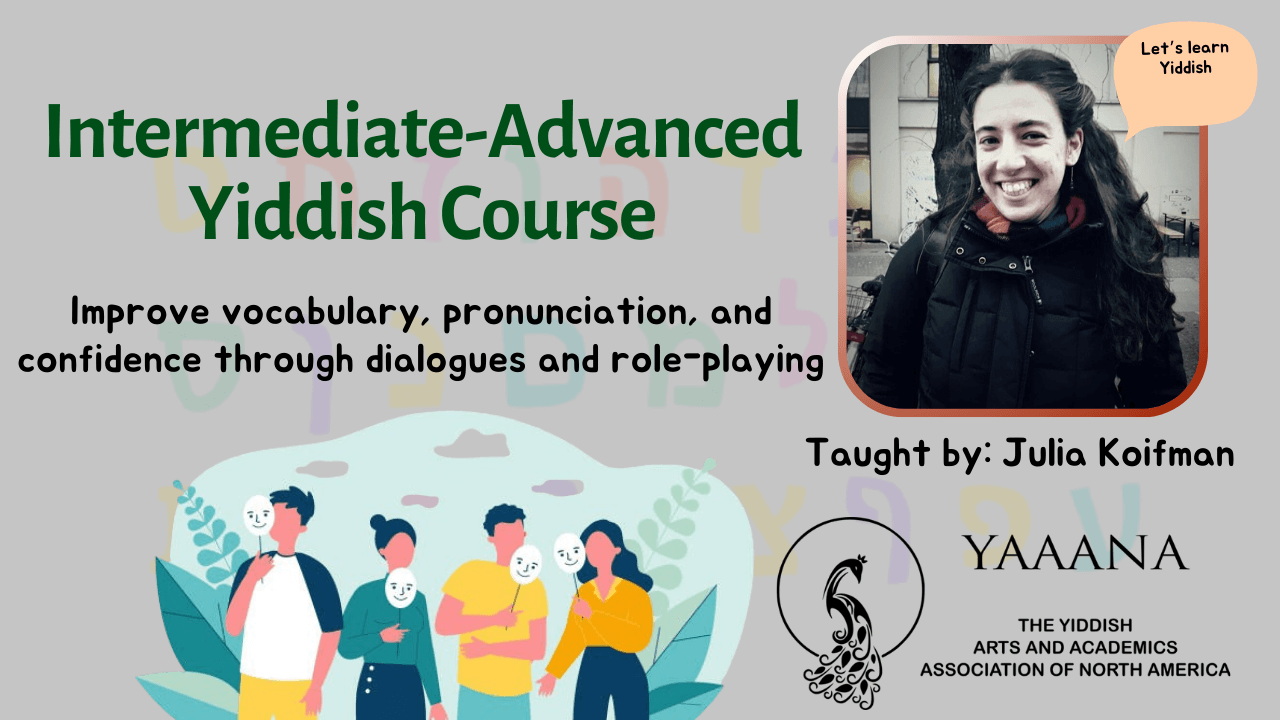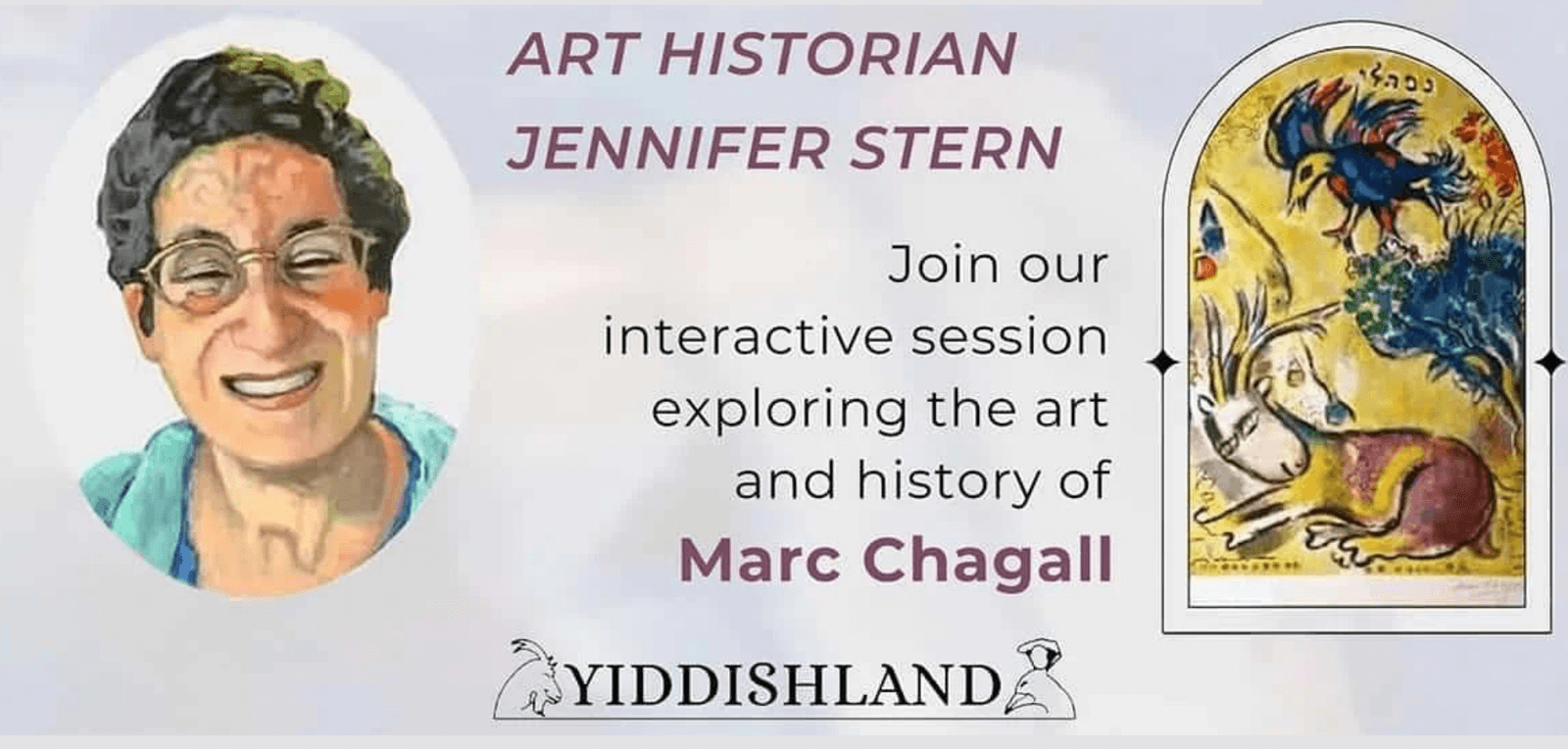Upcoming Yiddish and Polish Classes
ייִדיש שפּראַך לעקציעסייִדיש איז דאָך אַזױ שײן. . .
Yiddish awakens the silent echo of forgotten shtetls. However, it is also a living language that connects deeply to history and culture. Because of this, Yiddish continues to resonate with people who seek more than words.Simply put, Yiddish is beautiful.
At Yiddishland, we invite you to explore this rich language through our engaging and welcoming classes.
Learn Polish at Yiddishland
Due to popular demand, we are happy to continue offering Yiddish classes for beginner students. These courses are designed to support learners at every stage of their Yiddish journey.
When: Tuesdays, February 10 – March 17, 2026
2:00 – 3:00 p.m. PT / 4:00 – 5:00 p.m. CT / 5:00 – 6:00 p.m. ET / 10 – 11:00 p.m. UK / 11 – 12:00 a.m. Central Europe
Where : Online via Zoom
Yiddish for Absolute Beginners with Osian Evans Sharma
Over the course of eight sessions, students will begin their journey into Yiddishland. They will explore both the language and its rich cultural background. First, students will learn to read and write the alef-beys (Yiddish alphabet). Then, they will begin using Yiddish in simple, everyday situations.
When: Sundays, January 11 – March 1, 2026
10:30 a.m. – 11:30 a.m PT / 1:30 p.m. – 2:30 p.m. ET / 12:30 p.m. – 1:30 p.m. CT / 6:30 p.m. – 7:30 p.m. GMT / 7:30 p.m. – 8:30 p.m. in CET.
Where: Online via Zoom
Reading and Crafting Yiddish Poetry with Osian Evans Sharma
TThis course is designed for students who have already studied Yiddish for at least one term. However, it is also open to speakers of all levels who want to grow their creative voice. Through guided reading and writing exercises, students will deepen their understanding of Yiddish poetry and expression.
When : Sundays, January 11 – February 15, 2026
12–1 p.m. PT / 3–4 p.m. ET / 8–9 p.m. GMT / 9–10 p.m. CET
Where: Online via Zoom
This course is designed for students who want to improve their spoken Yiddish. In addition, each session focuses on conversation and dialogue. As a result, students gain confidence in real-life situations.
In addition, participants will:
- Expand vocabulary with new phrases
- Improve pronunciation
- Discuss culture and current events
- Take part in role-playing and debates
- Learn Yiddish songs that deepen cultural understanding
When : Sundays, January 4 – February 1, 2026
12:30 – 1:30 p.m. PT / 3:30 – 4:30 p.m. ET / 9:30 – 10:30 p.m. CET
Where : Online via Zoom
About the Yiddish Language
Yiddish is both old and new, traditional and innovative.Yiddish developed about a thousand years ago in Ashkenaz. Over time, the language traveled wherever Ashkenazi Jews migrated. Moreover, it is still spoken today by more than a million people.
In addition, it is studied worldwide by people who want access to Yiddish literature, music, theater, humor, history, and film.
While Yiddish uses the Hebrew alphabet, it is a Germanic language. Because of this, English speakers often find it easier to learn than expected.
Our Teaching Approach
We are proud to offer students the opportunity to study Yiddish from beginner to advanced levels. Our programs include reading circles, conversation classes, theater workshops, children’s classes, song workshops, and even Yiddish yoga.
In addition, we organize intensive language programs and support a Yiddish teachers’ committee. Please explore some of our past offerings below, and check out our upcoming activities and events calendar for future classes.
SOME OF OUR PAST CLASSES
Please click on any image to learn more.
Please see our Events Calendar and Other Upcoming Events!

